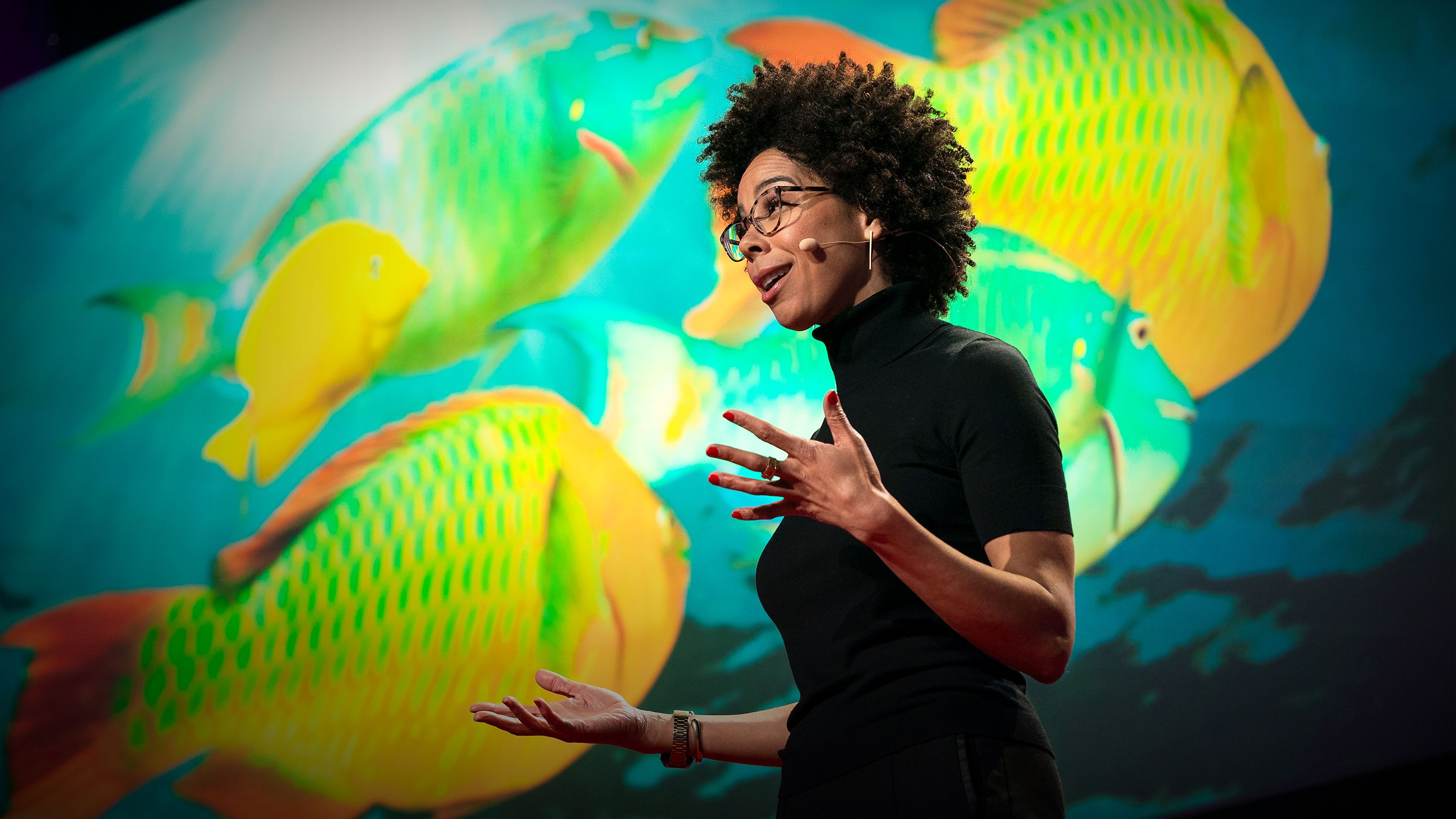A coral reef love story
435,835 views |
Ayana Elizabeth Johnson |
TED2019
• April 2019
Over the course of hundreds of scuba dives, marine biologist Ayana Elizabeth Johnson fell in love -- with a fish. In this ode to parrotfish, she shares five reasons why these creatures are simply amazing (from their ability to poop white sand to make colorful "wardrobe changes") and shows what's at stake -- for us and them -- as climate change threatens the future of coral reefs.
